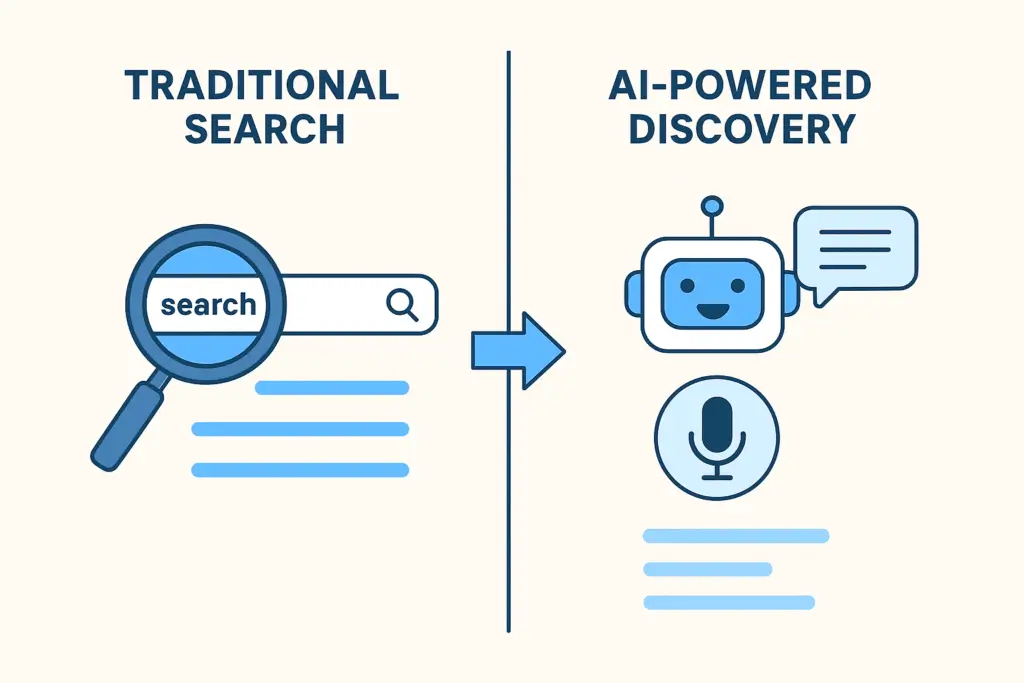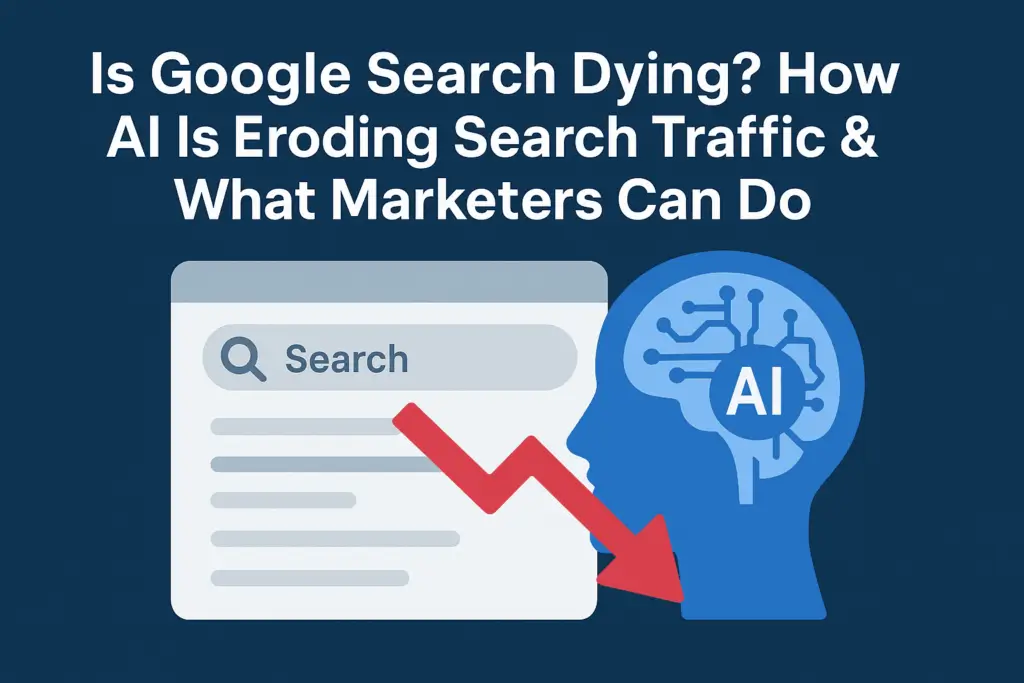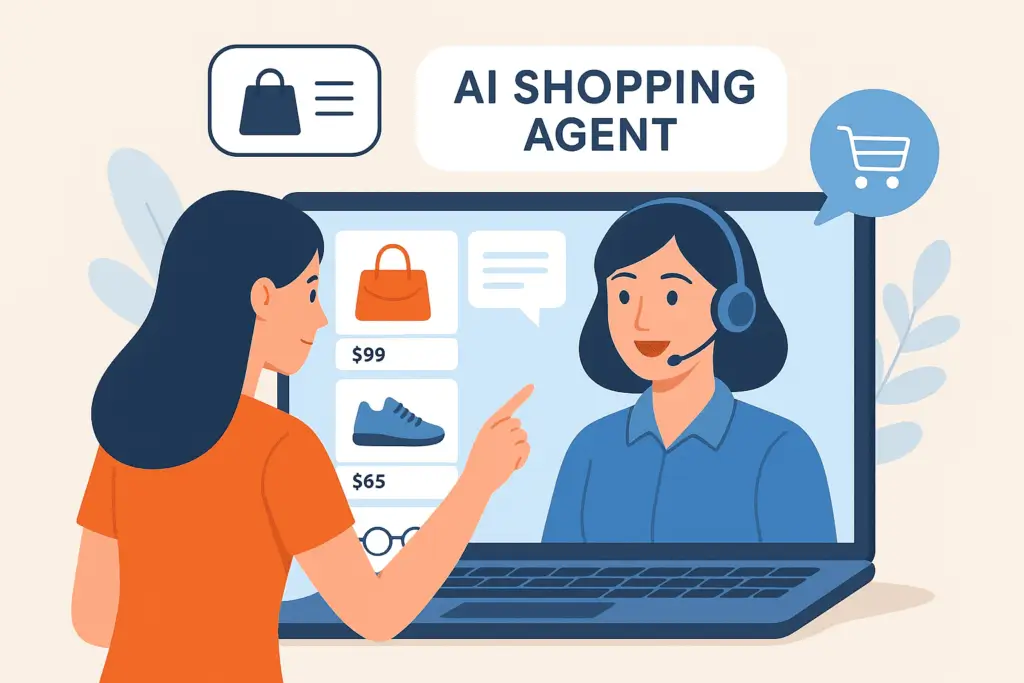Is Google Search really on life support? Recent data suggest it might be. Industry reports show Google search impressions are up about 49% year-over-year, but the click-through rate has plunged by 30%. In practical terms, users are asking more questions but clicking fewer links. AI-generated “Overviews” on the results page now answer queries directly, reducing clicks to websites. One media exec called this drop “pretty shocking” – MailOnline saw its organic CTR fall from ~13% to under 5% when Google’s AI answers appeared. This has webmasters asking, “What happened to Google search results?” and “Is Google Search dying?”
In this post, I’ll explain why search traffic is declining, what’s behind the buzz (think ads, AI, and ChatGPT), and exactly what digital marketers and business owners can do about it. Expect data, expert insights, and actionable tips to adapt in this AI-driven era of search.
Is Google Search Dying? The Evidence
Even Google’s own data hints at a slowdown in traditional search traffic. A new BrightEdge report found that despite more search impressions, click-through rates (CTR) are down about 30% year-over-year, largely because of Google’s AI Overviews. In other words, people see results, but fewer are clicking links. Independent studies confirm this trend: pages with AI Overviews get far fewer organic clicks than normal results. For example, when MailOnline ranked #1 in Google, its desktop CTR dropped from 13% to under 5% if an AI snippet appeared on the page.
Meanwhile, Google’s search market share dipped below 90% for the first time since 2015. Users have more options today – from YouTube and TikTok search to niche engines – and many are exploring them. Even SEO communities (on Reddit, etc.) are buzzing with claims that “Google search is dead” as organic results get buried.
The bottom line: something is happening. Google Search isn’t literally dead yet, but traffic is shifting dramatically. These stats and anecdotes make it clear why marketers are worried about “Google Search dying.”
Why Are Users Abandoning Google?
 Google search is dying, and traditional search is shifting towards AI-powered.
Google search is dying, and traditional search is shifting towards AI-powered.
AI Overviews and Generative Answers
One big reason for the decline is Google’s push toward AI-generated answers. Instead of a list of links, Google now often displays a concise “Overview” at the top of the page, summarizing information with AI. It’s convenient for users, but it means many questions get answered on Google without clicking a site. As one SEO director warned, “people can get answers without ever leaving Google.”
Google’s own executives argue this is fine – they call clicks from AI search “more qualified” and note users refine queries in conversational ways. Indeed, Google says people are asking more questions and clicking less. But critics point out the obvious downside: those fewer clicks are often to the very websites that create content. In practice, publishers see significantly lower traffic when AI answers appear.
As one media expert put it, “Now, people can get answers without ever leaving Google,” – raising the question whether this change is undermining the web’s business model.
Ad Overload and Search Frustration
Another factor is that ads now dominate search results. What used to be a clean, minimalist page is now often an ad-heavy “billboard.” Web designers describe Google’s results as “overcrowded, ad-filled” and lament that organic results are pushed down by paid links. It’s like walking through Times Square packed with flashing billboards – users complain that the first page is so cluttered with ads and sponsored content that they can’t find relevant information quickly.
In short, Google monetized search so aggressively that many user queries end up surfacing ads, shopping results, or sponsored answers instead of the pure “ten blue links” we remember. When every slot is a paid placement or an AI snippet, it can feel like Google Search is “ruined” for discovery.
This isn’t just frustrating users; it also pressures small publishers. As noted, you can be the best writer in the world, but if you aren’t paying to play, you “won’t make it to the top of the search results.” In short, Google’s pay-to-play model has skewed the system in favor of big advertisers, harming the diversity and quality of results.
Many dissatisfied users are responding by trying other ways to find content.
ChatGPT, Social Media, and Other Alternatives
Meanwhile, a new class of search alternatives has emerged. Chatbots like ChatGPT and Bing Chat let users get answers from AI without running a Google search. Users simply type questions into a chat interface and get a concise answer – sometimes with sources, sometimes not. In fact, researchers found that participants perceived ChatGPT’s answers as higher quality than Google’s for straightforward questions, and many enjoy the conversational experience.
While ChatGPT isn’t perfect (it can “generate or replicate misinformation”), it’s become a natural go-to for quick info for some people.
Social media and specialized apps also play a bigger role now. Platforms like TikTok, Instagram, and Reddit have become search engines for certain queries, especially for younger users. People might “Google” a question by typing it into TikTok or YouTube, finding video answers or community Q&A. Web designers note that “people are now turning to TikTok, YouTube, Instagram, and even Reddit to find answers,” seeking more interactive, human-driven content.
In many niches, a video or post on social media might surface an answer faster than a web search. This cultural shift – favoring engaging social content over traditional search – contributes to the sense that Google Search is “on its last legs.”
Impact on Websites & SEO
All these changes have real consequences. Traffic is bleeding. Major news publishers have reported double-digit drops in Google referral traffic. For example, MailOnline’s SEO director revealed that AI Overviews cut their traffic dramatically: in one case, a query that used to bring 6,000 clicks fell to just 100 after an AI snippet took over. On average, MailOnline’s organic search traffic was down ~19.5% year-over-year.
Independent data backs this up: multiple studies have documented “significant website traffic reductions” when AI search features are present. Search experts note that organic traffic is decreasing while ad performance holds steady – meaning publishers may need to invest more in ads just to get the same visibility.
In practice, Google is telling marketers to adapt. In a recent press event, Google executives said AI search is delivering “higher quality” clicks, and they advised content creators to change tactics. Their suggestions include writing question-and-answer content, adding video material, and building robust FAQ sections on websites. These steps are meant to align with how people are now searching – for example, voice assistants and AI search often pull from Q&A-style text.
Pitfall to Avoid
One key warning here is don’t ignore these signals. If you continue using only “old-school” SEO tactics, you risk losing visibility. Google has already stated that good SEO now means being recommended and cited by AI, not just ranking high.
In other words, optimizing for the AI layer is the new battleground. Publishers should not blindly trust Google’s “we deliver quality clicks” narrative. The independent evidence shows sites are getting fewer clicks, so assuming nothing has changed is a recipe for surprise traffic losses.
What Marketers and Business Owners Can Do
If you’ve built your strategy around Google organic traffic, now is the time to diversify and adapt. Here are actionable steps to stay ahead:
1. Optimize for AI and Voice Search: Write in a conversational Q&A style, include clear answers to common questions, and use FAQ schema. Google’s own advice is to “give consumers new ways to discover information” with direct answers. This means focusing on useful, structured content. Also, improve voice search compatibility by targeting natural language queries (e.g. “How do I…” questions).
2. Invest in Branded Content & Loyalty: Pursue brand-specific queries and unique content that AI bots can’t replicate. Loyal followers will still seek out your site for your voice and exclusive insights. Consider adding live blogs, exclusive columns, or community features that AI Overviews won’t fully replace.
3. Strengthen Other Traffic Sources: Don’t put all your eggs in Google’s basket. Build up email marketing, social media presence, and direct engagement. Use platforms like LinkedIn, Twitter, or niche forums to reach audiences. Think omnichannel: if search traffic falls, you’ll still have readers coming from newsletters, social ads, or referrals.
4. Leverage Paid Search & Content Partnerships: If organic is harder, plan a strategic ad budget. Google Ads, social ads, and content partnerships (sponsored posts, guest blogs, influencers) can help maintain visibility. Treat ads as part of SEO now – they ensure you appear even when organic slots are sparse.
5. Focus on Quality and Uniqueness: Above all, create the best possible content. High-quality, original content is more likely to be cited by AI Overviews and shared on social media. Long-form research, data insights, or interactive tools can distinguish you from the “sea of sameness.” Use charts or infographics to present data compellingly (e.g., CTR drop stats) and keep readers engaged.
By taking these steps, marketers can hedge against the decline in traditional search traffic. Think of it as evolving your strategy: not abandoning SEO, but broadening it. From my experience, businesses that invested in user loyalty and diversified channels weathered past algorithm shifts (like Google’s Panda/Penguin days). The AI era is another major shift – but with agility and quality content, it’s an opportunity to strengthen your brand and reach.
The Future of Search: Trends to Watch
So, will Google Search die completely? Unlikely – Google still handles the vast majority of queries worldwide. But the nature of “search” is changing. Google itself is doubling down on AI: it demoed an “AI Mode” that feels like ChatGPT inside Google, predicting a future where search is a conversation. If that becomes the default, it could make clicks even rarer.
We should also watch how regulation and competition evolve—Google’s under antitrust scrutiny, which might force changes. Meanwhile, Microsoft is pushing Bing Chat, and privacy-focused engines (like DuckDuckGo or smaller players) could attract more users fed up with Google’s model.
From a tech standpoint, expect more integration of multimodal AI (images, voice, etc.) in search. Voice assistants (Hey Google, Alexa) will keep growing, so preparing for that is key. On the flipside, be aware of AI’s downsides: hallucinations, bias, and “filter bubbles.” Users and regulators are demanding more transparency in AI answers, which may affect how Google implements its AI features.
For now, the best strategy is to adapt and experiment.
-
Voice Search Ready: Ensure pages answer “What is…” and “How to…” clearly, since voice assistants and Google’s new AI often start with those phrases.
-
Featured Snippet Mindset: Aim to get quoted in Google’s AI answer box by providing concise definitions or step-by-step answers.
In short, Google Search isn’t “dead” yet, but it’s under serious stress from AI and monetization pressures. Businesses that pay attention to these trends and pivot will turn this challenge into an advantage.
Conclusion
In summary, Google Search is at a turning point. Data show organic clicks are dropping sharply due to AI Overviews and ad saturation, and alternatives like ChatGPT are rising. Rather than despair, marketers and business owners should adapt by optimizing content for the new AI-driven search paradigm (think voice queries, Q&A formats, and strong brands) and by diversifying their traffic sources.
The key takeaways: Google’s search model is evolving, not ending — but user behavior and algorithms are changing fast. Stay proactive: monitor your analytics for traffic shifts, experiment with AI tools in your workflow, and engage your audience directly through other channels. By following expert strategies (like embracing schema markup, video content, and branded storytelling), you’ll not just survive the AI disruption — you might even thrive in it.
Is Google Search dying? Not quite – but it’s certainly morphing into something new. What do you think? Share your thoughts or questions below, and let’s navigate this future together!



